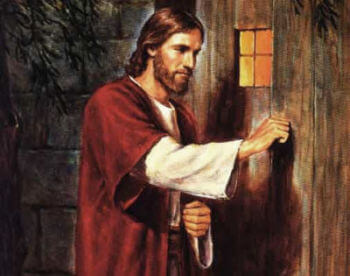
Hope is built on the belief that in time things will get better. This gives us a purpose for staying faithful to our Christian call even when things seem to be getting darker.
An employee who struggles with difficult work is sustained by the knowledge that at the end of the week he will get a paycheck. A ball team, even if it is in the middle of a losing streak, is sustained by the belief that if they work hard, their next game will be a victory. Watching a loved one struggle with a terminal illness, family members are sustained by the prospect of the person’s recovery.
As Christians what does “things will get better” look like for us? We know that our natural hopes fail us at times. Stories are told of companies that collapse and workers no longer can depend on them for a paycheck. Ball teams that have lost four in a row can work as hard as possible and still lose the next game. And many people, in spite of their prayers, watch a loved one give way to death. There is always the possibility that natural hope can let us down—things that we expect to get better do not.
What sustains Christians is the belief that Jesus Christ will return to make all things right again. This will happen because Jesus promised to return. Politicians may not deliver on their promises, financial resources may suddenly collapse on us, and even family members may let us down. Jesus will not let us down.
Jesus spoke to his disciples about his return (Luke 12:35-38).
“Gird your loins and light your lamps and be lake servants who await their master’s return from a wedding, ready to open immediately then he comes and knocks.”
Servants’ lives centered on their master. When he was gone, they were motivated by the confidence that he would return. And so they went about their work diligently, kept their uniforms on, and made sure their lamps were lit.
“Blessed are those servants whom the master finds vigilant on his arrival…should he come in the second or third watch (from 9 at night until 3 in the morning) and find them prepared in this way, blessed are those servants.”
The heart of the master is stirred when he sees his crew of servants standing at the door, dressed in clean clothes, lamps lit, with smiles of excitement on their faces when he walks toward the house. His heart rejoices knowing how important he is to these loyal servants and how happy they are that he returned.
Would that we be part of the “servant crew” who are dressed up in grace, have smiles on our faces, and jump up and down when we see Jesus “pull into the driveway.” His heart will be moved that we have so centered our lives in him.
When the master returns and sees his servants eager to greet him, what will he do?
“Amen I say to you, he will gird himself, have them recline at table, and proceed to wait on them.”
It is unheard of that a master “trade places” with his servants—that he tell them to sit down while he prepares and serves them dinner. The master is so moved that he does for his servants what they are expected to do for him.
Jesus is on his way. Let all we do be empowered by the confident expectation of his unannounced return.
“Truth shall spring out of the earth and justice shall look down from heaven” (Ps 85:12).
